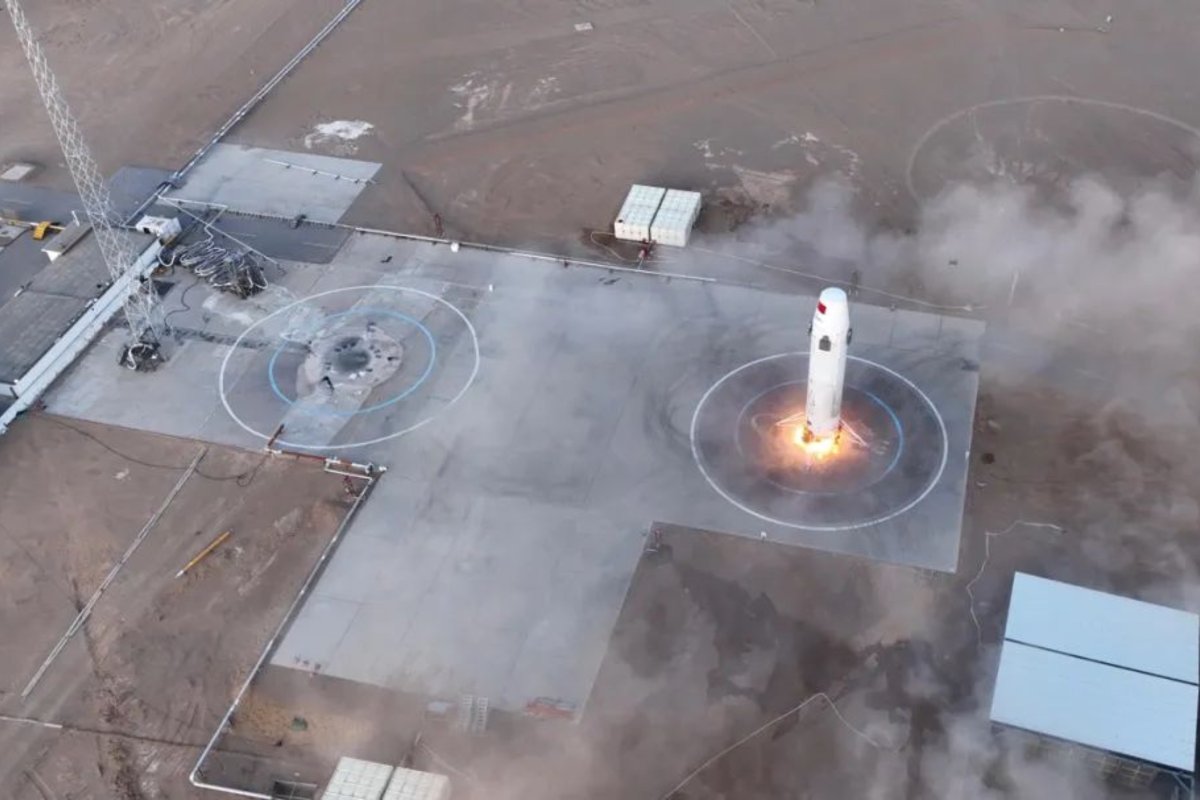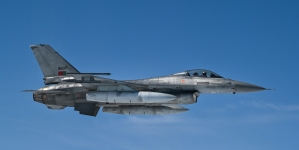-
China’s SpaceX Rival Is Coming for Elon Musk - December 12, 2023
-
A portion of Mulholland Drive, damaged by mudslides in winter storms, reopens - May 26, 2024
-
‘Maybe You Don’t Want to Win’ - May 26, 2024
-
Donald Trump Putting Law Enforcement in Danger: Attorney - May 25, 2024
-
Avoid the waters of these 5 L.A. County beaches this holiday weekend, public health officials say - May 25, 2024
-
Bawdy Comedy ‘Anora’ Wins Palme d’Or at Cannes Film Festival - May 25, 2024
-
Map Shows Heat Wave Zone Spread Into Five New States - May 25, 2024
-
Azusa police arrest suspected slingshot-wielding vandal - May 25, 2024
-
Donald Trump Hammers Judge Ahead of Jury Instructions - May 25, 2024
-
Sometimes U.S. and U.K. Politics Seem in Lock Step. Not This Year. - May 25, 2024
China’s SpaceX Rival Is Coming for Elon Musk
A private Chinese aerospace company looking to rival Elon Musk’s rocket technology company, SpaceX, has conducted another successful test of its own reusable launcher, footage from the weekend showed.
Beijing Interstellar Glory Space Technology, better known as iSpace, demonstrated its Hyperbola-2Y rocket in a launch and landing “hop test” on Sunday at the Jiuquan Satellite Launch Center, in the deserts of China’s northern Inner Mongolia region.
It marked a next step toward a fully functional domestically manufactured reusable rocket section for China’s commercial aerospace industry, which aims to catch up to the United States and compete globally with the likes of SpaceX and other private endeavors.
It’s one of several Chinese enterprises to crowd the private space industry in recent years.
iSpace’s advancements in reusable rocket technology, and its robust financial backing, make it a significant future player in the global commercial space sector, allowing it to potentially repeat the successes of SpaceX and contribute to China’s fast-growing space program.
Its test on December 10 verified the Hyperbola-2Y as a reusable liquid oxygen-methane carrier rocket, the company said on its official social media account. It was part of iSpace’s plan to develop a reusable medium-lift rocket in early 2025.
Footage released by the Chinese space startup showed the rocket taking off from one launch pad before descending onto another nearby in what iSpace said was a 63.15-second flight.

iSpace
The rocket reached 343.12 meters (1,125 feet), shifted horizontally 50 meters (164 feet) and landed at a speed of 1.1 meters (3.6 feet) per second.
“This flight provided further data samples from various systems, and additional technical information for more frequent and more efficient flights of the reusable launch vehicle,” iSpace said, noting the test’s importance to its medium- and heavy-lift vehicle research and development.
The Hyperbola-2Y’s successful hop test was another milestone for iSpace, which conducted the vehicle’s first-ever launch and recovery a month earlier. In a 51-second vertical test on November 2, the reusable rocket section rose to a height of 178 meters (583 feet) and achieved a soft landing at Jiuquan.
China’s state-backed Beijing News newspaper celebrated the latest space-based achievement with a headline that read: “Catching up with SpaceX.”
“Some rocket technology experts said that the second flight was not a simple repetition. In terms of flight profile, it flew higher than the first flight and added 50 meters of lateral maneuverability, laying the groundwork for subsequent sea recovery and other more difficult tasks,” The Beijing News said on Monday.
The paper also described the event as the “first full-scale liquid oxygen-methane rocket launch in China to successfully complete a vertical take-off and landing recovery mission.”

iSpace
Among iSpace’s ambitious plans are the launch of its Hyperbola-3 family of rockets—capable of delivering significant payloads to low Earth orbit. A demonstration of the reuse is expected in 2026.
A triple-core version of the rocket, the Hyperbola-3B, is also in the works, with a configuration similar to that of SpaceX’s Falcon Heavy.
Financially, iSpace is well-supported, having raised approximately $172 million in Series B funding in 2020, the company said at the time, in an investment to fuel the development of the Hyperbola space launch vehicle, reusable liquid oxygen-methane engines, and the training of new talent.
iSpace is also planning an initial public offering on the Shanghai Stock Exchange’s Science and Technology Innovation Board, or STAR Market, further reflecting its desire make SpaceX-like inroads into China’s private space sector.
iSpace and SpaceX did not immediately respond to separate written requests for comment about their competitive relationship.
Uncommon Knowledge
Newsweek is committed to challenging conventional wisdom and finding connections in the search for common ground.
Newsweek is committed to challenging conventional wisdom and finding connections in the search for common ground.
Source link































